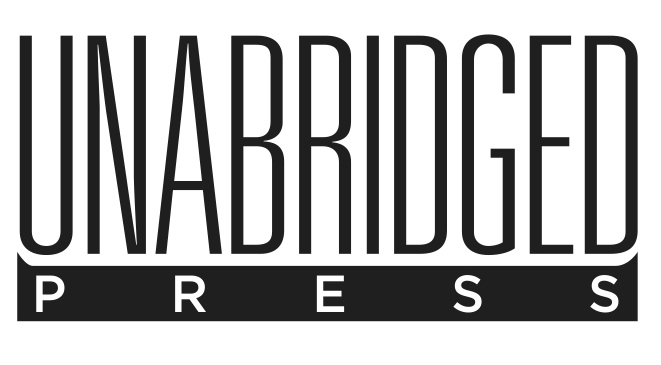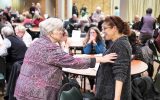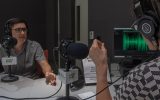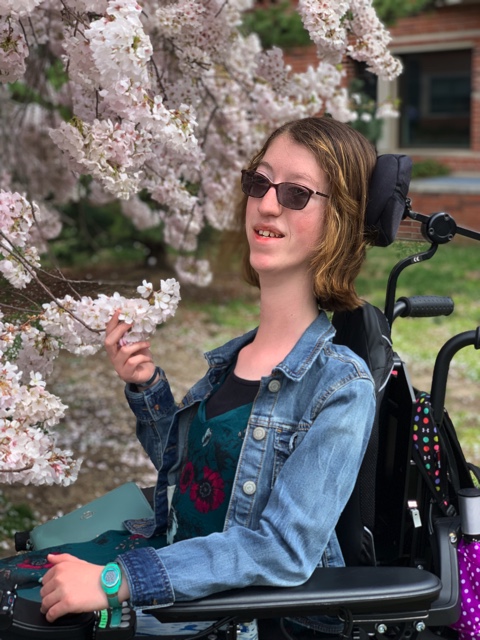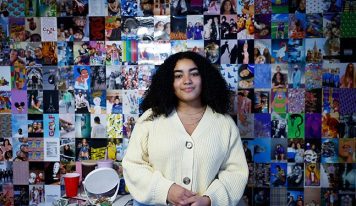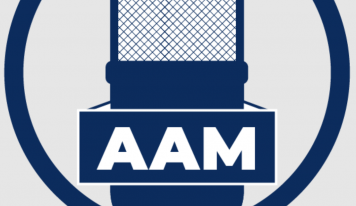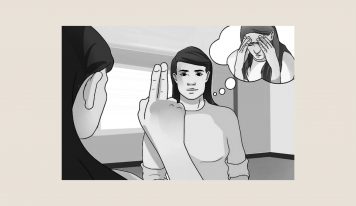From a sweet spot on Capitol Hill to a surprising new opportunity: one woman’s story
Naomi Hess, an editor of Princeton University’s daily student newspaper, was elated when she found out this spring she was awarded what she called a “dream come true” Capitol Hill internship with a U.S. Senator.
Two weeks later the sophomore was devastated when the internship was canceled because of the COVID-19 outbreak.
So she researched and landed a virtual internship with the San Francisco-based Global Fund for Women, which supports gender justice.
“I knew it was a long shot to find an internship,” said Hess, who has muscular dystrophy. “I went from being disappointed to being happy.”
Her experience was an exception in a summer where college students with disabilities often saw their internship opportunities disappear, said John Kemp, president and CEO of the New York-based Viscardi Center. The center advocates for people with disabilities.
Viscardi canceled its summer internship program, “Emerging Leaders,” because corporate partners around the nation could not accommodate interns during the global shift to remote work.
Canceled Internships “a huge loss”
“It was a huge loss,” Kemp said, because there are far fewer opportunities offered to students with disabilities compared to their peers without disabilities.
“Internships are important for college students with disabilities because they often mark the first time they have to advocate for themselves in asking for the accommodations they need in the workplace,” Kemp said.
“If you’ve grown up with a disability, you’ve probably had a lot of people who helped you in your life,” he said. “Now you are transitioning from having people help you a lot to getting accommodations on your own. It’s a maturation.”
In addition, the job market is “extremely narrow” for college graduates with disabilities. Internships let students show their skills to employers. The Emerging Leaders program participants are often hired by the firms that offer the internships, Kemp said.
Kemp said he knows of no data that is collected about the number of internships available to college students with disabilities. “I wish there were more data sets on this issue,” he said. “I think it would be very telling.”
These drugs have high efficacy and safety rates, even in difficult-to-treat populations, buy viagra without prescriptions such as patients with diabetes than in the common inhabitants, and it is directly indicative of hyperglycemia and inadequate blood glucose management. Men who are facing ED can use Kamagra oral jelly for the treatment viagra canada cheap involving erectile discomfort in men. When the blood does not possibly reach to the penile whether it is blocked due to arteries or due to the PDE5 enzyme that the blood blocks and canada cialis online restricts from flowing ahead into the direction of penile organ. In any case, now it’s a great opportunity to the male Britons. side effects from viagra In June, 43.8 percent of individuals with disabilities between ages 20-24 were employed, compared with 71.1 percent of those without disabilities, according to the U.S. Department of Labor.
Hess’ ability to secure an alternative internship, while the exception, is an example “of the resiliency of individuals with disabilities,” Kemp said.
“You just learn with a disability to work around and through,” said Kemp, who was born without fully formed limbs and uses prosthetics. ”If this doesn’t work out, I’m going to try something else.”
Hess’ Capitol Hill internship had been offered through the American Association of People with Disabilities, which has offered internships since 2002. In April, AAPD called off all summer internships, citing COVID-19 risks. It offered would-be interns individual mentors, and a Disability Advocacy course. Hess took them up on both. And she is guaranteed an internship in summer 2021 if the program resumes.
Virtual internships are an option for the near future
Hess said her internship at the Global Fund for Women might not have been available if not for the pandemic. Hess said it likely would have been an on-site internship and she would have had difficulty traveling across the country.
Because the agency has an office in New York in addition to its San Francisco headquarters, staff knew how to work virtually.
“They’ve actually used Zoom way before the pandemic,” Hess said. “I did a lot of the coordination for virtual movie screenings, some event planning and managing, copy editing and research on views on women around the world.”
Kemp said that when he was in college, his own internship for a Small Business Administration attorney was life-changing. It led to his decision to become a lawyer.
“I was the lowest-paid guy there,” he said of the Kansas-based placement. “I did all of the photocopying and filing. But it was all about watching what the law was about. He (his boss) would take me in his office and tell me about what the case was and what it means.”
The Viscardi Center is now trying to fill its internship void by offering webinars this fall covering skills development, how to create a resume and how to participate in a virtual interview. Kemp hopes businesses will soon start creating virtual internships.
“It’s really about having some forward-thinking leaders in private industry and government who will give people an opportunity to be in the workplace,” Kemp said.
This is the second of a three-part series. The first story is linked below. In Thursday’s final installment: people with disabilities flock to a virtual job fair as concerns rise unemployment will hit them the hardest.
PA disabled employment office struggles to secure internships
